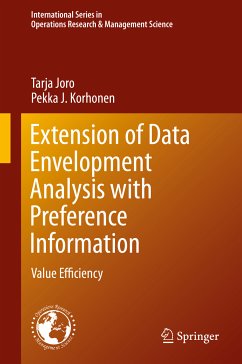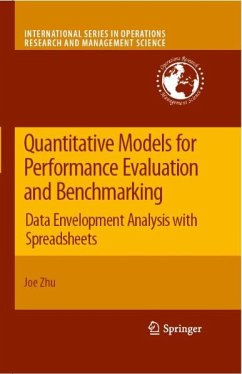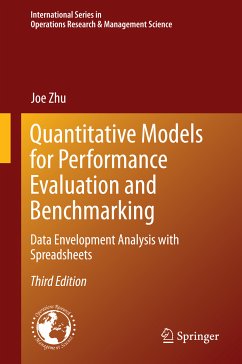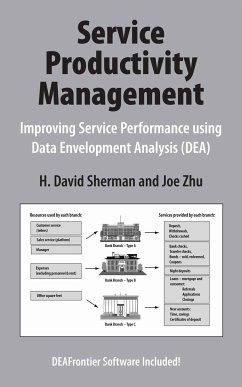
Dynamics of Data Envelopment Analysis (eBook, PDF)
Theory of Systems Efficiency
Versandkostenfrei!
Sofort per Download lieferbar
112,95 €
inkl. MwSt.
Weitere Ausgaben:

PAYBACK Punkte
56 °P sammeln!
Data envelopment analysis develops a set of nonparametric and semiparametric techniques for measuring economic efficiency among firms and nonprofit organizations. Over the past decade this technique has found most widespread applications in public sector organizations. However these applications have been mostly static. This monograph extends this static framework of efficiency analysis in several new directions. These include but are not limited to the following: (1) a dynamic view of the production and cost frontier, where capital inputs are treated differently from the current inputs, (2) a...
Data envelopment analysis develops a set of nonparametric and semiparametric techniques for measuring economic efficiency among firms and nonprofit organizations. Over the past decade this technique has found most widespread applications in public sector organizations. However these applications have been mostly static. This monograph extends this static framework of efficiency analysis in several new directions. These include but are not limited to the following: (1) a dynamic view of the production and cost frontier, where capital inputs are treated differently from the current inputs, (2) a direct role of the technological progress and regress, which is so often stressed in total factor productivity discussion in modem growth theory in economics, (3) stochastic efficiency in a dynamic setting, where reliability improvement competes with technical efficiency, (4) flexible manufacturing systems, where flexibility of the production process and the economies of scope play an important role in efficiency analysis and (5) the role of economic factors such as externalities and input interdependences. Efficiency is viewed here in the framework of a general systems theory model. Such a view is intended to broaden the scope of applications of this promising new technique of data envelopment analysis. The monograph stresses the various applied aspects of the dynamic theory, so that it can be empirically implemented in different situations. As far as possible abstract mathematical treatments are avoided and emphasis placed on the statistical examples and empirical illustrations.
Dieser Download kann aus rechtlichen Gründen nur mit Rechnungsadresse in A, B, BG, CY, CZ, D, DK, EW, E, FIN, F, GR, HR, H, IRL, I, LT, L, LR, M, NL, PL, P, R, S, SLO, SK ausgeliefert werden.












